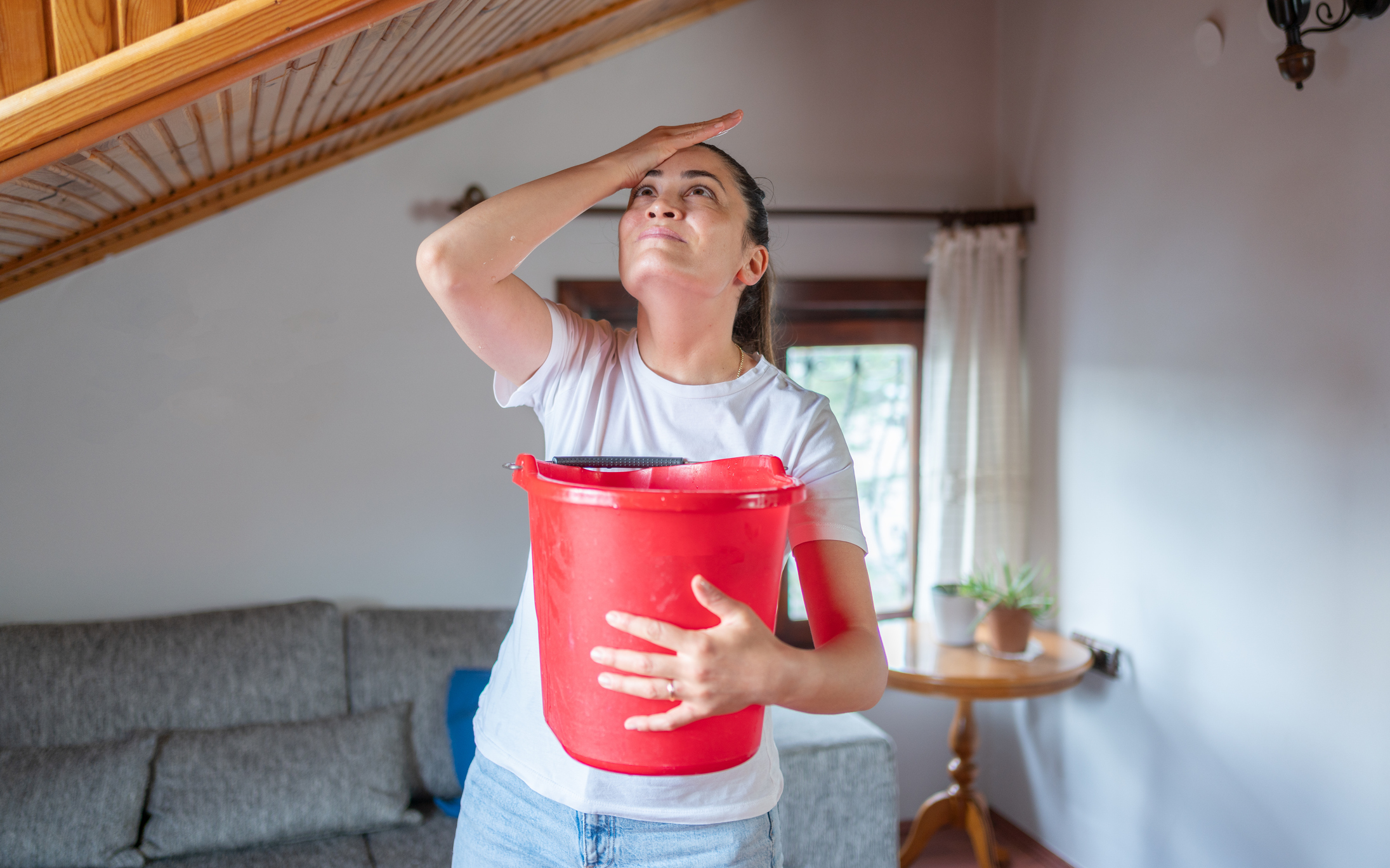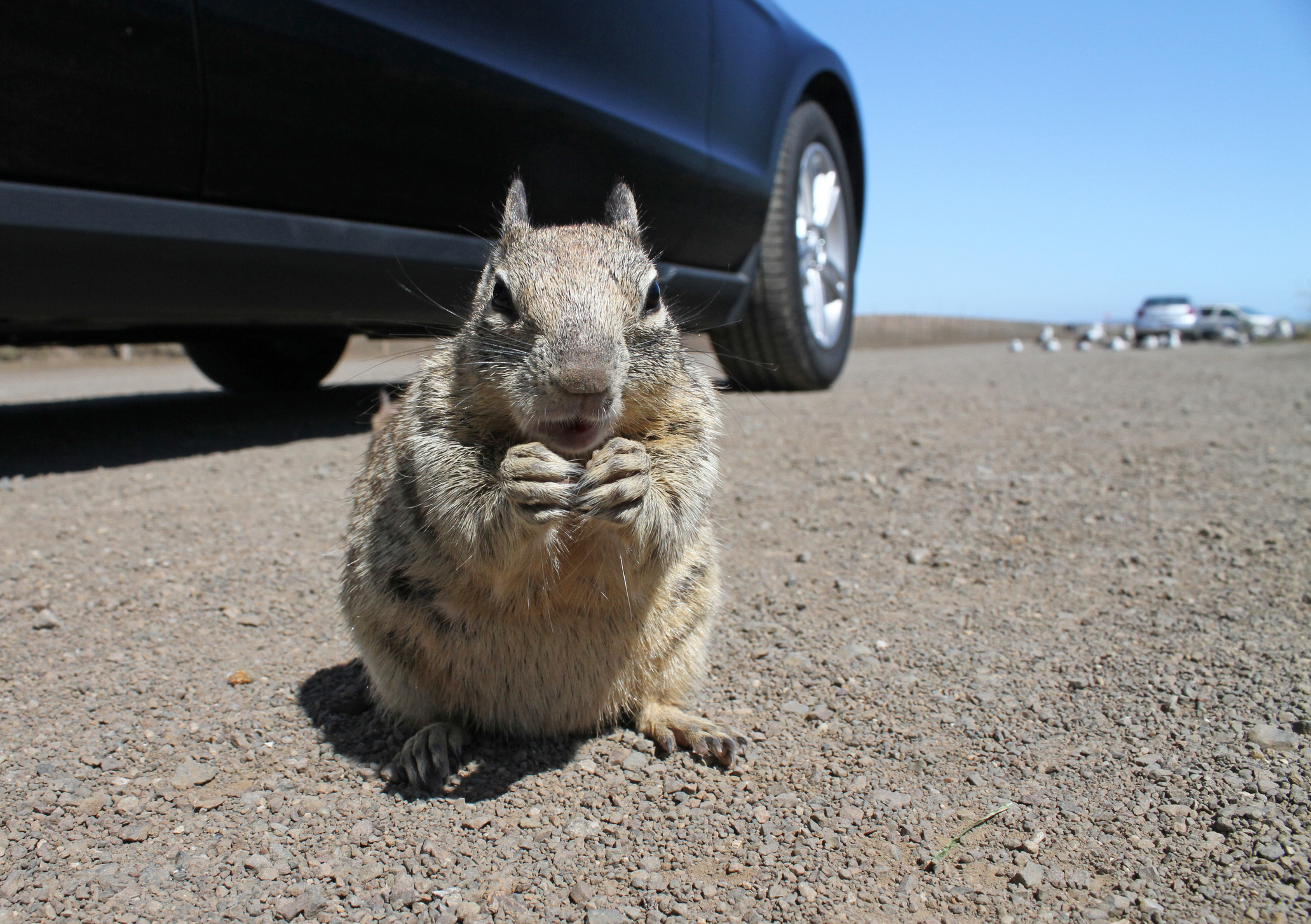Snowbirds: Avoid These 3 Sneaky Insurance Issues
Before you depart for your winter retreat, ensure you're prepared for any surprises that might arise, or else you could be on the hook for repairs.


Profit and prosper with the best of Kiplinger's advice on investing, taxes, retirement, personal finance and much more. Delivered daily. Enter your email in the box and click Sign Me Up.
You are now subscribed
Your newsletter sign-up was successful
Want to add more newsletters?

Delivered daily
Kiplinger Today
Profit and prosper with the best of Kiplinger's advice on investing, taxes, retirement, personal finance and much more delivered daily. Smart money moves start here.

Sent five days a week
Kiplinger A Step Ahead
Get practical help to make better financial decisions in your everyday life, from spending to savings on top deals.

Delivered daily
Kiplinger Closing Bell
Get today's biggest financial and investing headlines delivered to your inbox every day the U.S. stock market is open.

Sent twice a week
Kiplinger Adviser Intel
Financial pros across the country share best practices and fresh tactics to preserve and grow your wealth.

Delivered weekly
Kiplinger Tax Tips
Trim your federal and state tax bills with practical tax-planning and tax-cutting strategies.

Sent twice a week
Kiplinger Retirement Tips
Your twice-a-week guide to planning and enjoying a financially secure and richly rewarding retirement

Sent bimonthly.
Kiplinger Adviser Angle
Insights for advisers, wealth managers and other financial professionals.

Sent twice a week
Kiplinger Investing Weekly
Your twice-a-week roundup of promising stocks, funds, companies and industries you should consider, ones you should avoid, and why.

Sent weekly for six weeks
Kiplinger Invest for Retirement
Your step-by-step six-part series on how to invest for retirement, from devising a successful strategy to exactly which investments to choose.
Winters in the south can be spectacular. There's nothing like having the sun kiss your cheeks, forgetting the bone-chilling conditions you left for the tropical oasis you're currently enjoying.
But as snowbirds know, your home is left behind and has to deal with any harsh winter conditions it encounters.
And if you return home and find damage, you might be in for another surprise: Your provider might not cover it. Because of that, you'll want to address these common insurance gaps before taking off for the winter.
From just $107.88 $24.99 for Kiplinger Personal Finance
Become a smarter, better informed investor. Subscribe from just $107.88 $24.99, plus get up to 4 Special Issues

Sign up for Kiplinger’s Free Newsletters
Profit and prosper with the best of expert advice on investing, taxes, retirement, personal finance and more - straight to your e-mail.
Profit and prosper with the best of expert advice - straight to your e-mail.
Leaving your home unoccupied
Say you return home after a restful season, only to discover some minor damage from a leaky roof shingle. No worries, you call your home insurance carrier to start a claim, and they ask if someone watched the home while you were away.
How you answer that question can determine whether you're out thousands or just your deductible. Some insurance companies won't cover home damage if the homeowner isn't home for 30 days or more and doesn't assign someone to watch it under the vacancy clause.
This is why it's integral to have someone visit your home regularly while you're away. They can pick up anything that arrived that you might have forgotten, and check to ensure your home is OK.
To see if this applies to your home, contact your insurance carrier. It's also a great time to shop around to see if you're receiving the best deal. Use this Bankrate tool to compare options fast and save money:
Failing to protect your pipes

One area that winter weather impacts the most is your home's pipes. If your insurance carrier determines that your pipes burst due to you turning off your heat or because you failed to insulate them properly, you may be liable for all the damage the leaks wrought.
That is why you'll want to do the following:
- Outside: If you have any garden hoses connected, remove them, drain them and store them somewhere dry. Next, you'll want to shut off any outdoor water valves. You can find these inside your home near the pipe on the wall that goes outside.
- Insulate your pipes: You can buy foam insulation at your local hardware store, cut it to size, wrap it around the pipe and secure it with insulation tape. Doing this will keep the pipes warmer, making them less likely to burst when the temperatures dip.
- Turn off the water supply: On the day you leave, shut off the water supply entirely, unless you have someone planning to housesit for a portion of the trip. To locate the main valve, look for the point where the water pipe enters your house, typically near your water heater, basement or crawl space.
- Lower, don't turn off the heat: Set your thermostat eight to 10 degrees cooler than you normally have it while there. This keeps your home cooler without shutting off the heat entirely, which can make your pipes more susceptible to damage.
Keeping your car stored outside

If there's a vehicle you don't plan to take on your winter journey, you want to ensure it remains in an airtight garage or car capsule before leaving. The reason? Over the winter, critters of all types can find cars and use them as nests to build their families.
As cute as that sounds on the surface, they'll also chew through wires and other critical components to make room for their growing family. When you return, you may encounter lengthy repair times, particularly if you have a luxury, foreign or antique vehicle.
Additionally, some auto insurance carriers are removing animal damage from their comprehensive policies. That means you could be liable for paying for all damages incurred from these furry little critters. And some of these repair bills can be tens of thousands of dollars.
The solution? Contact your current insurance carrier to see if you have protection. And if they don't offer it, you can use this Bankrate tool to shop around for a carrier that does:
The bottom line on insurance gaps for snowbirds
Before you travel south for the winter, know there are some insurance gaps you'll need to address before leaving. Doing this ensures you protect some of your most valuable assets while also preventing you from being liable for any damages that occur while you're gone.
Related content
Profit and prosper with the best of Kiplinger's advice on investing, taxes, retirement, personal finance and much more. Delivered daily. Enter your email in the box and click Sign Me Up.

Sean is a veteran personal finance writer, with over 10 years of experience. He's written finance guides on insurance, savings, travel and more for CNET, Bankrate and GOBankingRates.
-
 Quiz: Do You Know How to Avoid the "Medigap Trap?"
Quiz: Do You Know How to Avoid the "Medigap Trap?"Quiz Test your basic knowledge of the "Medigap Trap" in our quick quiz.
-
 5 Top Tax-Efficient Mutual Funds for Smarter Investing
5 Top Tax-Efficient Mutual Funds for Smarter InvestingMutual funds are many things, but "tax-friendly" usually isn't one of them. These are the exceptions.
-
 AI Sparks Existential Crisis for Software Stocks
AI Sparks Existential Crisis for Software StocksThe Kiplinger Letter Fears that SaaS subscription software could be rendered obsolete by artificial intelligence make investors jittery.
-
 One of the Most Powerful Wealth-Building Moves a Woman Can Make: A Midcareer Pivot
One of the Most Powerful Wealth-Building Moves a Woman Can Make: A Midcareer PivotIf it feels like you can't sustain what you're doing for the next 20 years, it's time for an honest look at what's draining you and what energizes you.
-
 I'm a Wealth Adviser Obsessed With Mahjong: Here Are 8 Ways It Can Teach Us How to Manage Our Money
I'm a Wealth Adviser Obsessed With Mahjong: Here Are 8 Ways It Can Teach Us How to Manage Our MoneyThis increasingly popular Chinese game can teach us not only how to help manage our money but also how important it is to connect with other people.
-
 Looking for a Financial Book That Won't Put Your Young Adult to Sleep? This One Makes 'Cents'
Looking for a Financial Book That Won't Put Your Young Adult to Sleep? This One Makes 'Cents'"Wealth Your Way" by Cosmo DeStefano offers a highly accessible guide for young adults and their parents on building wealth through simple, consistent habits.
-
 My Spouse and I Are Saving Money for a Down Payment on a House. Which Savings Account is the Best Way to Reach Our Goal?
My Spouse and I Are Saving Money for a Down Payment on a House. Which Savings Account is the Best Way to Reach Our Goal?Learn how timing matters when it comes to choosing the right account.
-
 We're 78 and Want to Use Our 2026 RMD to Treat Our Kids and Grandkids to a Vacation. How Should We Approach This?
We're 78 and Want to Use Our 2026 RMD to Treat Our Kids and Grandkids to a Vacation. How Should We Approach This?An extended family vacation can be a fun and bonding experience if planned well. Here are tips from travel experts.
-
 My First $1 Million: Retired From Real Estate, 75, San Francisco
My First $1 Million: Retired From Real Estate, 75, San FranciscoEver wonder how someone who's made a million dollars or more did it? Kiplinger's My First $1 Million series uncovers the answers.
-
 To Love, Honor and Make Financial Decisions as Equal Partners
To Love, Honor and Make Financial Decisions as Equal PartnersEnsuring both partners are engaged in financial decisions isn't just about fairness — it's a risk-management strategy that protects against costly crises.
-
 Top 5 Career Lessons From the 2026 Winter Olympics (So Far)
Top 5 Career Lessons From the 2026 Winter Olympics (So Far)Five lessons to learn from the 2026 Winter Olympics for your career and finances.